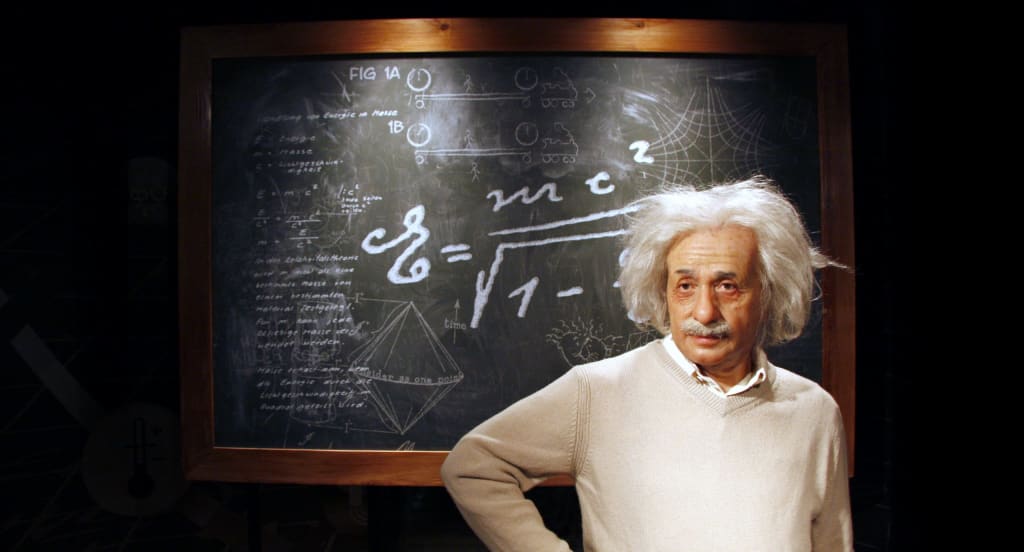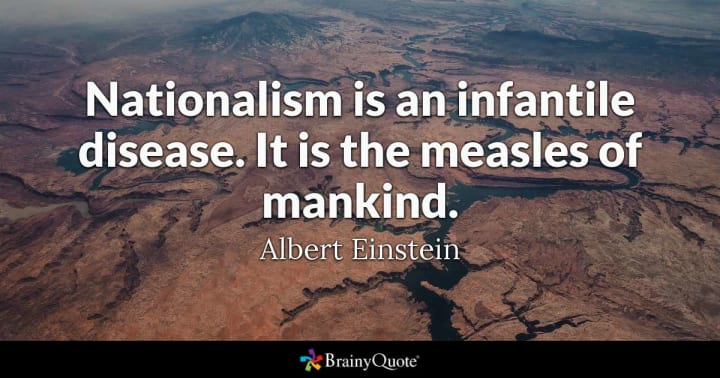5 Historical figures that school “forgot” to tell you were socialists
What's left out of text books can be telling.

Schools have a lot to cover, they can't do it all. I'm sure that its a perfectly innocent mistake that they just keep neglecting to mention these important people were dyed in the wool socialists.

Albert Einstein
What we remember
There are two pillars of modern physics, quantum mechanics--which was developed by many physicists including Einstein--and the theories of relativity. We were on our way to discovering quantum mechanics--which is why its not always clear who discovered what first--multiple scientists made discoveries at the same time. Relativity though, that was all Einstein. Its not clear when relativity would have been discovered, if at all, if not for Einstein. This is why his name is now synonymous with genius.
What we forget
Einstein did not beat around the bush in his 1949 essay Why Socialism? He uses the word “evil” four times to describe capitalism. He points out that owners of capital have an outsized ability to separate workers from the value of their labor. He warns that even in a democracy individuals can not expect politicians to protect them as legislators are largely financed or otherwise influenced by private capitalists. He concludes that for society to be saved would need the establishment of a socialist economy, accompanied by an educational system which would be oriented toward social goals.
Helen Keller
What we remember:
Keller was blind and deaf; both at the same time.
What we forget:
Keller was considered a “radical socialist,” a member of the socialist party and the author of the book How I Became a Socialist. She noted that newspapers loved her when she was working towards blind and and deaf causes. However, when she started working towards socialist causes they started describing her as being “especially liable to error” because of her disability and that “It would be difficult to imagine anything more pathetic than the present exploitation of poor Helen Keller by the Socialists.”
Martin Luther King Jr.
What we remember:
“I have a dream that my four little children will one day live in a nation where they will not be judged by the color of their skin but by the content of their character. I have a dream today.”
What we forget:
King is someone who conservatives like to brazenly mischaracterize for their own purposes. The claim goes that King wanted legal equality under the law and nothing else. Pundits like to say he would have disapproved of affirmative action, Black Lives Matter and reparations. Which is bullshit.
The way King saw it, you couldn’t have true political equality when there was vast economic inequality. King didn’t want to let his enemies call him communist, but as time went on he became more vocal about how "something is wrong with capitalism" and stating in one speech "There must be a better distribution of wealth, and maybe America must move toward a democratic socialism."
Upton Sinclair
What we remember:
Best known today for writing The Jungle which exposed the horrors of the meatpacking industry. An excerpt:
[T]he meat would be shoveled into carts, and the man who did the shoveling would not trouble to lift out a rat even when he saw one—there were things that went into the sausage in comparison with which a poisoned rat was a tidbit. There was no place for the men to wash their hands before they ate their dinner, and so they made a practice of washing them in the water that was to be ladled into the sausage.
What we forget:
From The Economist:
A HUNDRED years ago, a sensational novel attacking the meatpacking industry prompted Congress to draft the first federal food-safety laws. The author of “The Jungle”, Upton Sinclair, was disappointed. He had hoped to persuade Americans to embrace socialism. For him, the important point was not that the slaughterhouses of Chicago were unsanitary, but that they were “the spirit of capitalism made flesh”—a system in which “a hundred human lives did not balance a penny of profit.” The book's central character, a Lithuanian named Jurgis Rudkus, had come to America believing that through hard work he could grasp the American Dream. But he found that “the whole country...was nothing but one gigantic lie.”
Now The Economist went on to say that Upton was “wrong” but they didn’t really back that claim up. I mean, the rest of the article is about the struggles of Latino immigrants.
George Orwell
What we remember:
Writing dystopian fiction such as 1984 and Animal Farm. From the Signet’s edition of Animal Farm, which has sold over twenty million copies:
If the book itself, Animal Farm, had left any doubt of the matter, Orwell dispelled it in his essay “Why I Write”: “Every line of serious work that I’ve written since 1936 has been written directly or indirectly against Totalitarianism….”
What we forget:
The complete original quote was:
“Every line of serious work that I have written since 1936 has been written, directly or indirectly, against totalitarianism and for democratic socialism, as I understand it.”
Orwell’s biographer John Rodden called this “the politics of ellipses.” Its a kind of toning down of Orwell to be more broadly acceptable. You know, there ought to be a word for changing language to completely subvert the original meaning.
Sometimes though there are even less graceful attempts to use Orwell, such as when conservatives clumsily attempt to map 1984 onto cancel culture:
It needs to be added here that while Orwell would definitely hate the modern GOP, he wouldn’t like the Democratic party either. Every time a Republican snarls that the Democrats are socialists, a socialist cries out “I wish that was true!”
About the Creator
Buck Hardcastle
Viscount of Hyrkania and private cartographer to the house of Beifong.
Enjoyed the story? Support the Creator.
Subscribe for free to receive all their stories in your feed. You could also pledge your support or give them a one-off tip, letting them know you appreciate their work.






Comments
There are no comments for this story
Be the first to respond and start the conversation.